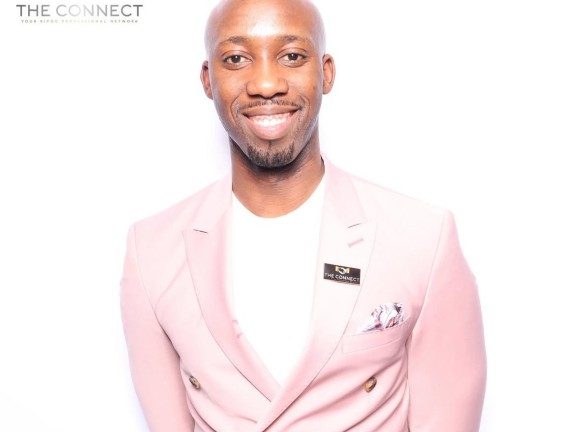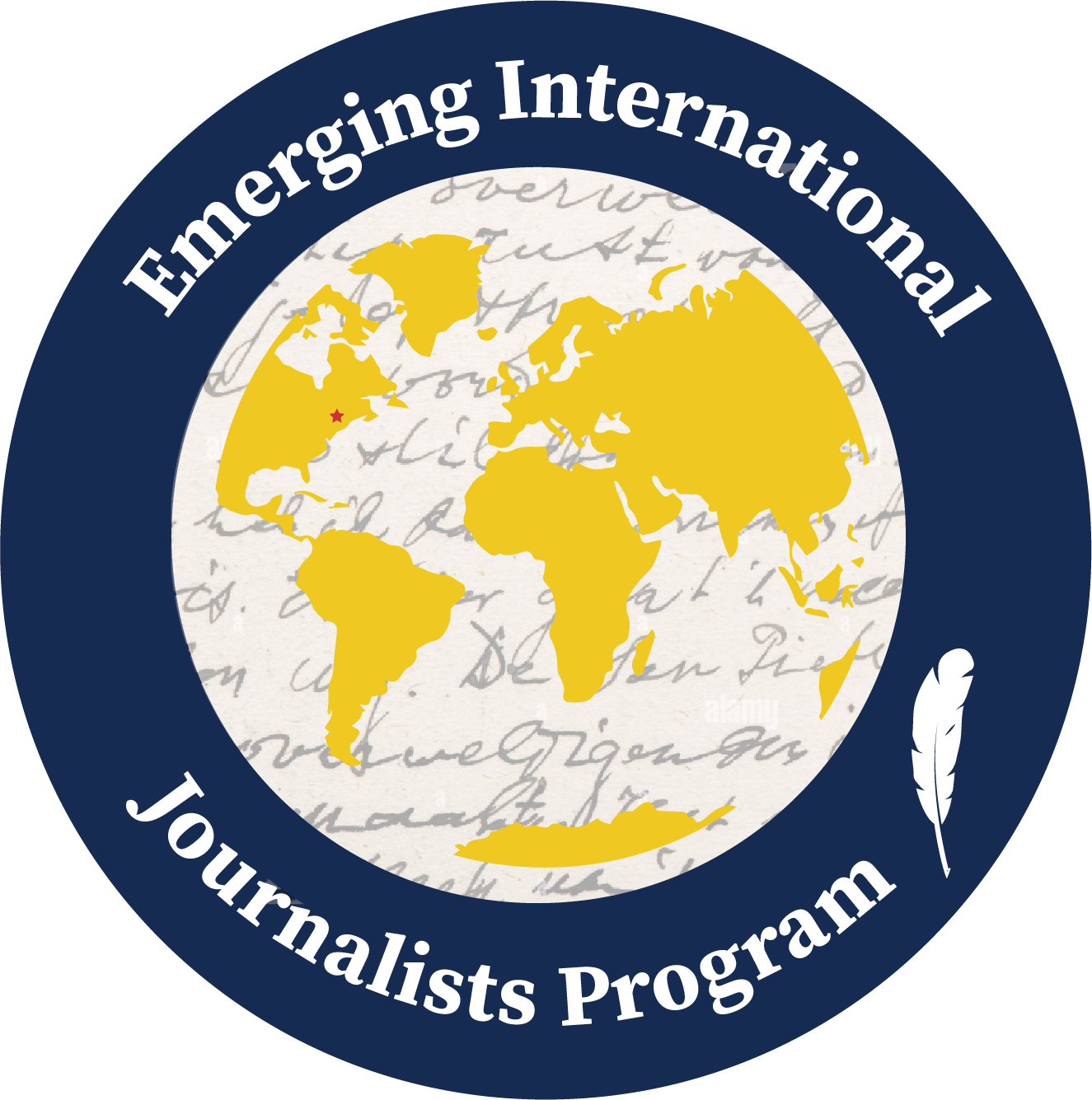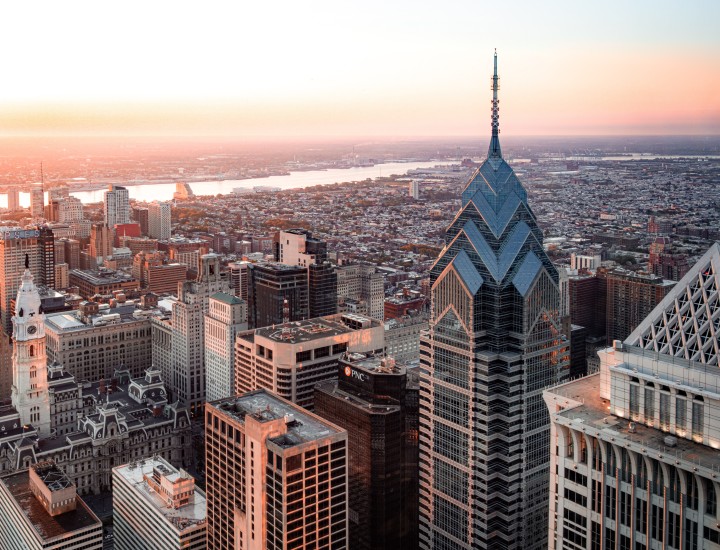The Future of Workforce Equity and Development: Travel Perspectives with Senzwa Ntshepe

Rooted in community and driven by equity, longtime Philadelphian Senzwa Ntshepe is revitalizing the professional sector of cities around the country. Ntshepe is the CEO and President of The Connect, a dynamic networking and resource-allocation organization born in Philadelphia and dedicated to empowering Black and Brown professionals. At the heart of The Connect's mission is a commitment to workforce development and the creation of pathways for underrepresented communities to thrive, lead, and reshape the future of industry.
After growing up in Philadelphia, Ntshepe studied Psychology at George Washington University. His passion for professional development, technology, and DEI led him to be involved in startup project management and community-driven organizations over the course of his professional career. Notably, he co-founded startups devoted to the education of marginalized students and developed strategic partnerships and management strategies.
His experience traveling to South Africa as a young man offered him the opportunity to connect with his own familial history, as well as the country’s heritage and professional sector. This, along with his visits to different cities across the United States, shaped his perspectives on what gaps existed in the professional and cultural landscapes for Black and Brown professionals in Philadelphia, and how he could create a better sense of belonging for those community members. Ntshepe’s story offers a prime example of how travelling as a young professional can create a new career trajectory and inspire new passions.
Madi Costigan: Can you tell us about your company, The Connect, and about your professional background?
Senzwa Ntshepe: I am currently the President and CEO of The Connect. We teach cities how to retain, track, and develop their Black and Brown talent, and we make sure that cities have thriving ecosystems for Black and Brown professionals. We're currently located in three cities: Philadelphia, DC, and we're launching a new chapter in Memphis. We connect folks to the community, making sure they have what they need. This includes building an ecosystem of like-minded individuals, making sure folks have access to financial capital but also aspirational capital, and that they have that understanding of where to go.
The last part is conviction, so we make sure that they have a strong understanding of and have a strong love for their city, and that they get civically engaged and have access to volunteer opportunities. We also provide opportunities to close knowledge gaps and pass the information that they've acquired, while developing professionally in their career, to the next generation and learn from the previous generation.
My personal background is a mixture of DEI [Diversity, Equity, and Inclusion] and technology. I was a DEI consultant and also partnered with a few folks to start tech companies, focusing on providing similar opportunities for marginalized people. I also have a background in UX [User Experience], so I focused on creating customer solutions based on people's behaviors, attitudes, and needs. The Connect is a nice amalgamation of things that I've been passionate about and developed an expertise for. It's nice to continue to serve the community the way I do now.
MC: How long have you worked in Philadelphia and why was it an effective starting place for The Connect?
SN: I was born in New York, but raised here in Philadelphia. I've been here since I was two, so I don't know anything different. I went to a different school almost every year, so I very rarely had a contiguous sense of belonging and knew how it felt to be ostracized, especially growing up and navigating socio-economic stratas as well, by going to different schools.
I went to George Washington University in D.C., and when I came back, I realized that there was a huge disparity of the quality of life for folks that look like me between Philadelphia and D.C. I wanted to understand why that was and go deep into the structures of the cities and how they compare, but a lot of it has to do with access to opportunity. Here in Philadelphia, business growth is really slow, so folks can't really get competitive wages, and because of that, they have less disposable income.
We're educated at a very similar rate; Philly has a lot of really great schools. However, folks can't really get those jobs to pay back their loans, so they tend to move to New York, D.C., or other places where they can make more money and feel like they have more of a community that looks like them as well. I thought to myself, “there are a lot of great resources here, and while we continue to change the structure, let's do something to change the nature and environment from a programmatic level,” and that's where The Connect came in.
The Tax Reform Commission is trying to reduce specific taxes so that Philly is a more attractive city for big business, so small businesses don't feel the squeeze, and large businesses are incentivized to come here. That changes the nature of how we do work here, and what the city is known for. Then, ultimately, it changes the quality of life for folks that come here, because they can have more disposable income and more family sustaining income.
MC: You mentioned that The Connect has chapters in Philadelphia, D.C., and Memphis. Have you traveled anywhere else in the country that you have set your eye on to start a new chapter?
SN: Yes, our targets are cities that are similar to Philly and Memphis, they need an additional push as far as the aggregation of both human and capital resources. There are cities like D.C., Atlanta, and Houston that are doing really well when it comes to Black professionals. I really want to focus on those other cities.
I am interested in Baltimore; I've had a few conversations with Governor Moore in Maryland about setting up a chapter. Charlotte, North Carolina is a place that we're looking at as well. I haven't been to Dallas, but folks have told us to look at Dallas. I've been to Austin, which I think would be really interesting as another chapter. We're really focusing on a lot of those places that are up and coming as far as economic development and workforce development. The goal is to have 20 cities by 2027, and hopefully I have the amount of energy to make that happen.
We were really blessed that the mayor of Memphis sees the work that we're doing and is completely backing our chapter there, which is a first for us. We typically go from the bottom up, but it's nice to be recognized and supported that way.
MC: Where have you traveled internationally?
SN: The only place I've traveled internationally was when I traveled back home to South Africa. I was born here. My father was South African. My mother was Jamaican. I had an opportunity to visit when I was 22, and I stayed there for about three months.
That was a very full circle moment for me for a few reasons. One, I had never seen my last name associated with anything outside of myself, but I went to South Africa and saw it on my grandmother's grave. It made me realize that I come from somewhere, and the experience was like a cultural reclamation. I got to spend a lot of time with family that I had never met, and I got to understand how it would be if I had grown up in South Africa. I really just carried a different sense of pride with my name and my heritage that I didn't have before. It was also a different experience to see what South African business looked like and that was inspiring as well.
MC: Since you traveled at the age of 22 as a fresh college graduate, how did travel broaden your worldview and give you valuable new experiences at a young age?
SN: One is that it teaches you that you don't really know anything. You really have a very myopic understanding of the world based on your geolocation and cultural heritage. So, when you go out and you see other norms, those norms are just as valid as your norms, and you have to understand that things are different and that is okay. It allowed me to learn more and not impose my will on other people.
Two, it just gave me a sense of personal pride where I was able to represent myself and my family with more knowledge and not to make my identity seem aberrant, as it had my entire life. I didn't know anything about identity. I thought my language was weird, as a click language, and that was a sore spot growing up, and something that I got teased about a lot, so I came to understand how beautiful my language was.
Also, I got to understand that there is a global economy. I didn't know I was going to go into business, I just saw myself trying to solve a problem. But there's a global economy that you can tap into. And the last part is understanding that now I'm in the belonging business. The biggest lesson for me was thinking about how to make other people feel comfortable and feel at home and feel like their identity is validated as well. There are opportunities for identity validation.
MC: How has traveling to other cities, whether in the US or South Africa, directly affected your work in Philadelphia? Did you approach it differently, change strategies, improve a vision or goal?
SN: When I visited cities like D.C. and Memphis, I saw ecosystems where Black professionals not only had access to better economic opportunities, but also felt seen, supported, and a part of something greater than themselves. That sense of belonging—the ability to look around and see like minded peers who validate your experiences and affirm your identity—was something Philadelphia lacked at scale. It made me rethink how The Connect could go beyond networking and into community-building that centers cultural identity, pride, and collective growth.
But it was my trip to South Africa that brought it full circle. Seeing my last name on my grandmother’s grave, meeting family I had never known, and hearing the language I once felt ashamed of spoken with pride—it grounded me in a deeper understanding of who I am. It was a powerful reminder that identity doesn’t have to be fragmented to be accepted. That experience clarified that I’m not just in the workforce development space, but that I’m in the belonging business.
Now, everything I build in Philadelphia is with that in mind. It’s not just about creating opportunities, it’s about creating environments where Black and Brown professionals feel culturally safe, celebrated, and deeply connected to others who understand them. That’s the true power of The Connect: being seen, being supported, and belonging to something bigger than yourself.
MC: What advice do you have for traveling young professionals and the mindset they should have about traveling?
SN: I like to travel and do business at the same time. It is important to make connections; I can make national or international connections, so I can continue to provide value in my home city or other places where we conduct business. The goal is for us to be a subject matter expert on how to build Black professional cities.
Travel, expand your mind, but try to find what an ultimate goal is for travel. I travel and consider, “what's the goal? What's the lesson that I'm trying to learn here? Is it understanding other people? Is it understanding myself? What type of person do I want to become after this?”

